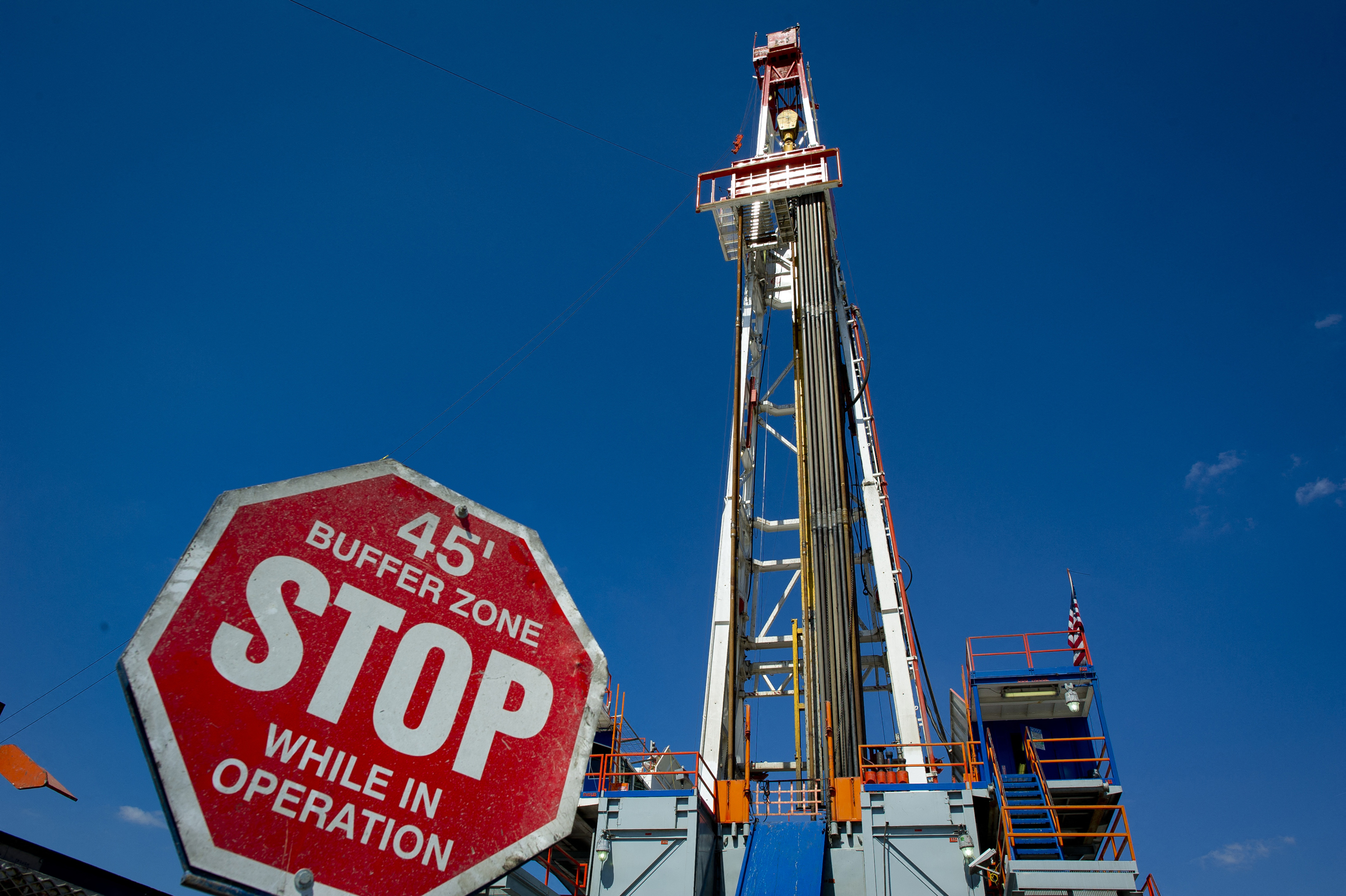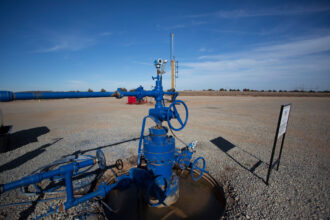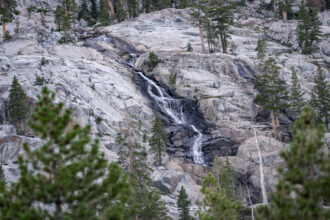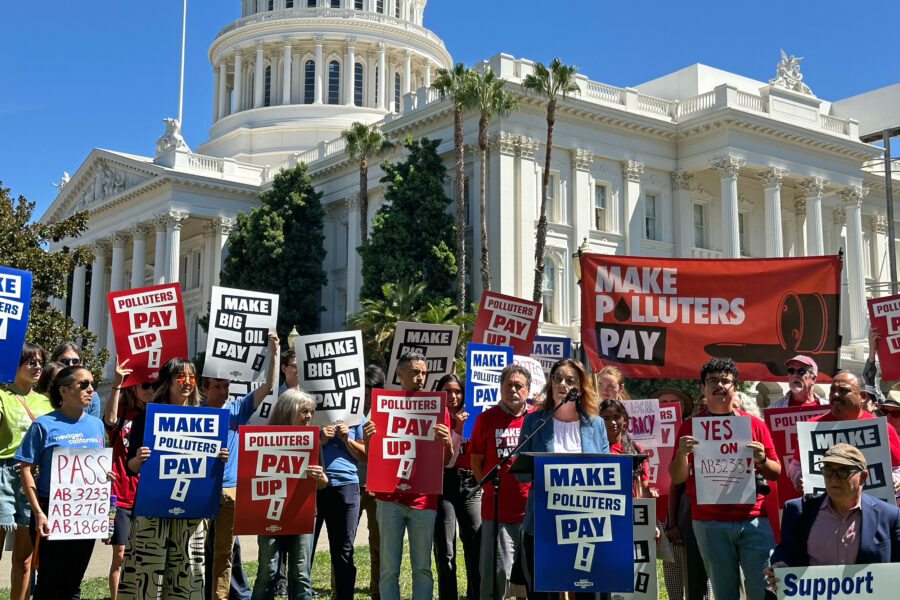On Wednesday, the natural gas company CNX Resources released the initial results from its environmental monitoring collaboration with the Pennsylvania Department of Environmental Protection, a partnership predicated on “radical transparency” around fracking operations that Gov. Josh Shapiro’s administration announced in November.
CNX’s natural gas development “poses no public health risks,” the company said, and CEO and President Nick Deiuliis said in an accompanying press release that natural gas drilling “done the CNX way” is “safe and inherently good for the communities where we operate.”
This contention is at odds with hundreds of studies on the impacts of the unconventional gas industry on health, the environment and the climate. The ninth and most recent edition of a compendium of scientific, medical and media findings related to fracking found “no evidence” that fracking can be done in a way that “does not threaten human health directly.” Much of this research has focused on Pennsylvania.
In 2023, Shapiro said the partnership would “advance commonsense measures to defend public health and safety while protecting jobs” and would help set a “new standard for Pennsylvania’s natural gas to be produced in the most responsible and sustainable way anywhere in the world.”
As part of the collaboration, the company agreed to increase setbacks from drilling sites from 500 to 600 feet and to 2,500 feet for sites near schools and hospitals and to “engage in intensive air and water quality monitoring.” The administration agreed to consider this data before recommending changes to policy.
Since November, CNX says it has collected more than 100,000 “data measurements” of emissions from 14 sites. The company measured concentrations of PM2.5, or fine particulate matter, and BTEX compounds, a group of toxic chemicals associated with fossil fuel production that includes benzene, a known carcinogen. The company said its measured emissions “fall well below science-based air quality standards.”
CNX reserved the right to delay or suspend its air quality data “at its discretion” and its agreement with the government covering disclosures of chemicals used in the fracking process does not mean they were required to share information about trade-secret chemicals that fall under the “Halliburton loophole.”
For anti-fracking activists and environmental groups in Pennsylvania, the CNX report is just the latest sign of the Shapiro administration’s lack of serious commitment to regulating the oil and gas industry in the state—and a confirmation that their initial disappointment and anger over the government’s partnership with the company was justified.
“When you look at this report, there’s really not a whole lot that’s transparent about it. They don’t mention a single chemical that they used to frack. There’s nothing in this report that talks about water quality or radioactivity,” said Dr. Ned Ketyer, who is a pediatrician and the president of Physicians for Social Responsibility Pennsylvania.
“Why the DEP and the governor would trust CNX to do the right thing and to do it in a fully transparent way—it just boggles the mind.”
The Shapiro administration did not respond to requests for comment.
Ketyer and others have pointed out the hundreds of violations CNX has been assessed by DEP since 2020 and criminal charges against the company filed by then Attorney General Shapiro for violating the Air Pollution Control Act in 2021. In January, Deiuliis published a letter addressed to Ketyer in response to comments he made to the Wall Street Journal about fracking. Deiuliis accused Ketyer of being “anti-science” and said critics of the natural gas industry carry “a shrill fanaticism of a virulent religion.”
Advocates say CNX’s data is cherry-picked as they only measured a small number of the hundreds of chemicals that are associated with unconventional gas drilling and development, and they chose which sites to monitor (the company operates more than 500 gas wells as of December 2023).
“They’re only considering a handful of pollutants they’ve measured around just a few select wells that they chose,” said Shannon Smith, the executive director of FracTracker Alliance, a nonprofit based in Pennsylvania that analyzes and tracks the impacts of oil and gas development.
Smith said CNX’s report is “full of outrageous claims and misinformation,” noting the company’s “snarky jabs” at local nonprofits “who are trying to advocate for families who are suffering from incredibly serious health impacts related to their industry.” Ketyer called CNX’s language in the report aggressive, defensive and “dripping with condescension.”
“Unfounded accusations and innuendo drive current popular narratives regarding the potential health impacts of responsible natural gas development,” the company wrote. “The agendas of those ideologically or financially opposed to progress and development” leads to policy in Pennsylvania that is based on “speculation, emotion, fear and ideology instead of objective facts and data.”
Smith and Ketyer both believe CNX’s intended audience for this report is not the general public but its investors. They pointed to recent news that the investment bank Piper Sandler had downgraded their outlook on the company.
“Whoever’s writing these reports from CNX’s perspective is doing it purely from an ideological and economically motivated standpoint,” Smith said. “They’re clearly not well-versed in public health science.”
In their report, CNX attacked a set of studies on the health impacts of fracking that were conducted by the University of Pittsburgh, funded by the Pennsylvania Department of Health and published in 2023. Calling the studies fatally flawed, CNX said their report’s results “cast doubt and raise concern about the validity” of the studies’ results on asthma, birth weights and childhood cancer. The studies concluded that living near fracking wells was correlated with increased risk of worsening asthma symptoms, lower birth weights and lymphoma in children.
Juxtaposing their methods with the university researchers’, CNX said the monitoring they’ve carried out on their own wells shows that their program of self-regulation is the “superior path forward when setting public policy.”
But Carmi Orenstein, a co-author of the compendium of findings on fracking and program director for Concerned Health Professionals of New York, said in a statement that the Pittsburgh studies are part of a much larger body of independent research on fracking, public health and contamination.
This story is funded by readers like you.
Our nonprofit newsroom provides award-winning climate coverage free of charge and advertising. We rely on donations from readers like you to keep going. Please donate now to support our work.
Donate NowThe Pennsylvania studies in the compendium, Orenstein said, reveal connections between living near fracking and asthma, poor infant health, leukemia, lymphoma, sinus symptoms, increased risk of hospitalization, lower birth weights and migraines.
“To dismiss en masse the methodologies and results of these studies is to dismiss the work of dozens of Pennsylvania’s own experts representing a range of fields within many of the state’s scholarly institutions, and their colleagues elsewhere,” she said, adding that epidemiologists are trained to consider consistency and biological plausibility when they publish their results and to include an assessment of the statistical strength and context of their own work.
The Pittsburgh studies relied on data and records from the University of Pittsburgh Medical Center, the Pennsylvania Department of Health’s cancer registry and the DOH’s birth registry.
“The complaints show a lack of knowledge about how epidemiological studies work,” Ketyer said, of CNX’s characterization of the Pittsburgh studies’ results as “loose statistics molded to infer vague associations.” Ketyer was a member of the external advisory board for the Pittsburgh studies, a board that also included representatives from Shell Oil and the American Petroleum Institute.
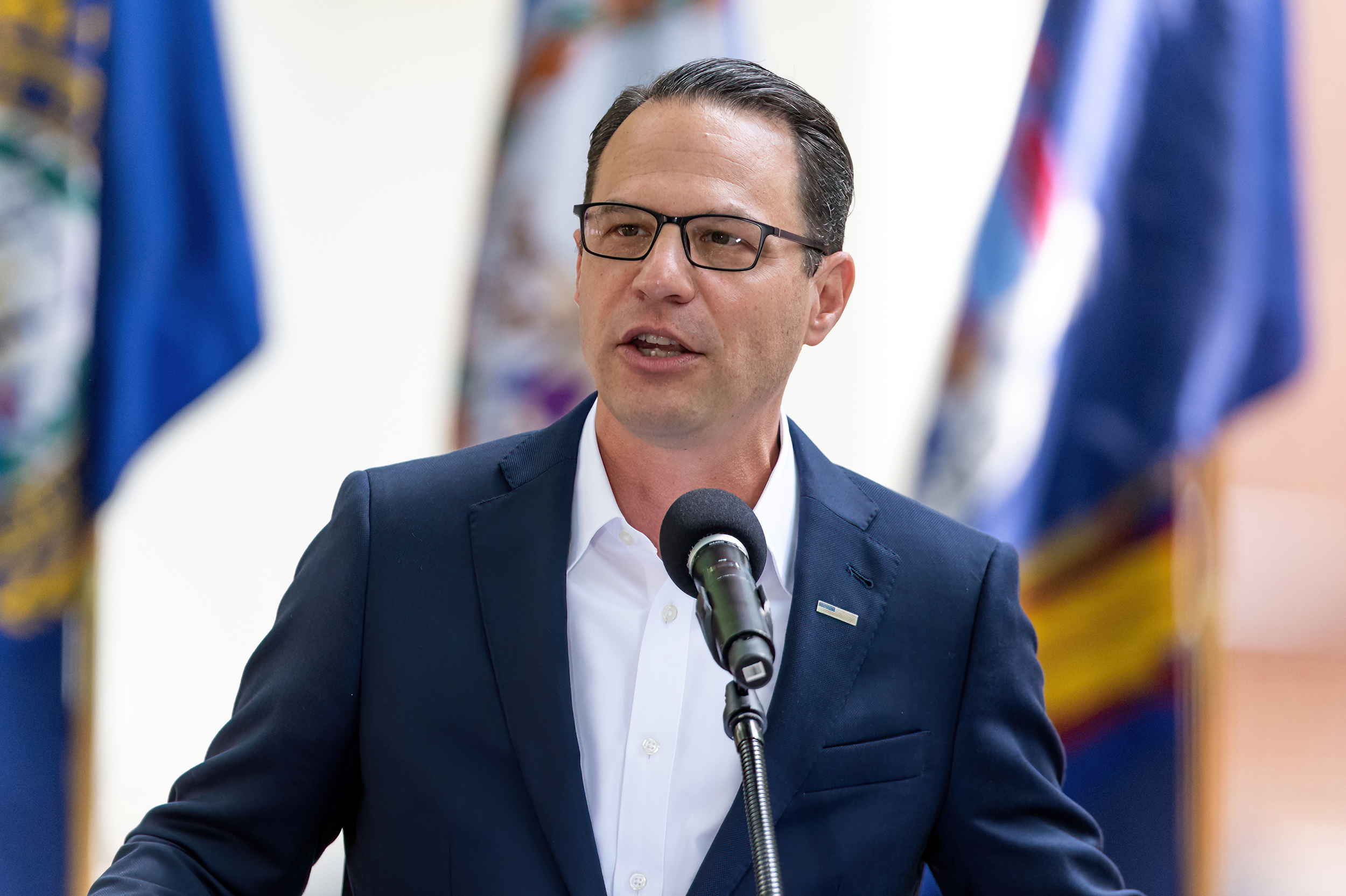
“You don’t have to have proof of causation to know that there’s something wrong and that people need to be protected. The studies are not designed to find proof, and finding proof is extremely difficult,” he said. “You don’t expose people to chemical X and then see what happens to them. That’s not how science works. You build up evidence, and now we have a mountain of evidence showing that fracking was harmful to the environment.” Since the studies were published in 2023, the Shapiro administration has not commented publicly on their results.
“It is entirely disingenuous for CNX—which is in business to extract gas—to accuse independent researchers of using ‘ambiguous and suspect statistics to goal-seek to their desired conclusions,’” Orenstein said. “On the contrary, scientists have sought, in highly challenging circumstances (such as dealing with trade secrets and regulatory loopholes around fracking chemicals) to shed light on what is, in fact, a massive experiment being conducted on Pennsylvania residents without their consent, and with few precautionary protections.”
Orenstein said that peer-reviewed scientific studies on fracking document an “unfolding public health crisis.”
“It is deeply alarming that the governor of Pennsylvania aligns himself with a company that denies this fact,” she said.
In a statement, a spokesperson for the University of Pittsburgh’s School of Public Health said that the school “is grateful to the citizens and communities of Southwestern Pennsylvania for their contributions to and thoughtful feedback on the PA Health and Environment studies.
“The Pennsylvania Department of Health contracted with Pitt to perform the studies according to a specified scientific design,” the spokesperson said. “The results contribute significantly to our knowledge of the links between unconventional natural gas development and health outcomes, providing important avenues for future research to investigate.”
At the time of the announcement, the administration hailed the CNX partnership as “historic” and said its provisions addressed several recommendations made in a 2020 grand jury report on fracking that was spearheaded by Shapiro when he was attorney general.
That report recommended expanding all well setbacks to 2,500 feet and mandating disclosure of all chemicals used in fracking, especially those subject to “trade secret” loopholes. The other recommendations covered pipelines, waste transport, the revolving door between employment at DEP and the industry, the involvement of the Department of Health and extending the jurisdiction for environmental crimes.
Ketyer said the only aspect he had seen significant improvement on since the report’s release four years ago was better communication between the Department of Health and DEP and better response times from DOH when residents who live near a fracking site complain about health effects.
The grand jury report offers a detailed glimpse into the harms suffered by Pennsylvania residents over 20 years of fracking in the state. Many of these symptoms, including nosebleeds, lethargy, ulcers and rashes, were suffered by children.
“Of all people, Governor Shapiro should know better,” Ketyer said, pointing to Shapiro’s involvement with the grand jury investigation and the fact that Shapiro’s father is a pediatrician. “He’s well aware of what is happening to Pennsylvanians.”
“He knows that people have gotten sick and are getting sick. He knows that farmers have lost animals. He knows that people have lost their drinking water. He knows that fracking is accelerating the climate crisis,” Ketyer said. “He knows, but the fact is, he’s complicit in allowing this to continue.”
About This Story
Perhaps you noticed: This story, like all the news we publish, is free to read. That’s because Inside Climate News is a 501c3 nonprofit organization. We do not charge a subscription fee, lock our news behind a paywall, or clutter our website with ads. We make our news on climate and the environment freely available to you and anyone who wants it.
That’s not all. We also share our news for free with scores of other media organizations around the country. Many of them can’t afford to do environmental journalism of their own. We’ve built bureaus from coast to coast to report local stories, collaborate with local newsrooms and co-publish articles so that this vital work is shared as widely as possible.
Two of us launched ICN in 2007. Six years later we earned a Pulitzer Prize for National Reporting, and now we run the oldest and largest dedicated climate newsroom in the nation. We tell the story in all its complexity. We hold polluters accountable. We expose environmental injustice. We debunk misinformation. We scrutinize solutions and inspire action.
Donations from readers like you fund every aspect of what we do. If you don’t already, will you support our ongoing work, our reporting on the biggest crisis facing our planet, and help us reach even more readers in more places?
Please take a moment to make a tax-deductible donation. Every one of them makes a difference.
Thank you,

